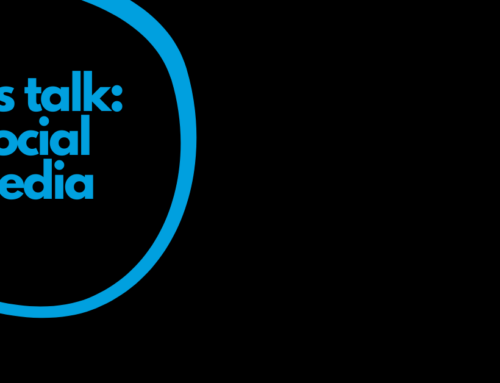By Aaron McFarland, Owner & CEO
Marketing agency life is always hectic. There is never a shortage of last-minute client requests and looming deadlines to keep your blood pumping and energy levels up throughout the week. New, never-seen-before challenges present themselves daily, and an internal hurdle or two to always manages to keep things interesting.
As a marketing agency, our staff hours primarily match that of our clients, meaning the usual Monday through Friday business days, 9:00 5:00 P.M., with irregular weekend work for studio appointments or special client needs. Our agency and studio calendars are almost always fully scheduled with advertising or creative meetings, video production shoots, studio reservations, and project reviews. This busy schedule doesn’t leave much time to handle personal business or home life tasks until the weekend.
Personally, as an agency owner, I work most days and evenings on new client proposals and general business management tasks. A few months ago, I realized that as the weeks went on I was feeling more and more tired – especially on Mondays when I should be rested after the weekend and ready to tackle my upcoming week. I usually sit down in my home office on Sunday evenings to get our weekly Monday meeting notes ready, plan the upcoming week for my team, check project progress and deadlines, etc. One Sunday I looked down at my watch in the late afternoon, noticing it was nearly time to sit down and prepare my week soon, only to internally sigh and think “I could really use another day off.” This same thought persisted for 6-8 weeks until it was obvious I needed to change something.
After some introspection on my normal weekend, it became increasingly obvious my relaxation time on weekends was anything but that. After sleeping in (which is a must on weekends for me – alarms don’t exist on weekends), I would routinely get up Saturday morning and clean my kitchen and straighten up the house… Then I’d notice the floors were dirty, so I needed to take care of that. Then, “Oh, I need to go grocery shopping.” Then my laundry and bedding needed washed and changed. Don’t forget about the lawn and the weeds! That garage is kind of a mess too! And so on, and so on. You know how it goes.
Weekends weren’t for resting, relaxing, and recharging, they were about catching up on my personal and home tasks and responsibilities. Before I had time to walk the dog or take my son to a movie, the weekend was gone and it was time to start thinking about the upcoming work week again – and that didn’t include spending a few weekend hours working the studio or a client job.
I brought this sentiment to my team, and It turned out they all felt the same way. With the intense client workload and creative schedule we were maintaining, there just wasn’t enough time on weekends to handle their personal lives and come back to the office recharged and ready to get creative for our clients. This wasn’t sustainable, and I knew something needed to change.
What are Flex Fridays?
Simply put, a “flexible day” or “flex day” is a day where employees can choose what serves them best for their work, personal life, or mental health. They can work as much or as little as they choose to or need to.
On flex days, an employee can work from home or work anywhere if they choose to. They can also clean their house, mow the lawn, or handle other personal business that would normally take up their weekend hours meant for resting, recharging, and spending time with family or friends. Flex days are also a great day to take care of personal appointments that might be impossible to schedule outside the 9-5 workday.
It’s important to note that flex days are not days off. They are flexible work days. A team member can choose to work as much or as little as they need or prefer, with the expectation that their work responsibilities are handled and projects are on track.
These flexible days are beneficial to the whole staff and intended to avoid burnout and improve mental health.
Implementation
While I fully trust my team, their outstanding work ethic, and commitment to providing quality work and service to our clients, there is always a little anxiety that comes with implementing such a significant change in any business.
One challenge my business faces implementing a flexible day schedule is the expectation we maintain to be available to our clients Monday through Friday. This means we can’t just disappear completely on a business day.
To address that, all employees are still expected to be available by phone and email throughout their flex day in case of client issues, emergencies, or needs from other team members. This meant ensuring all staff had access to their work emails via mobile as well as access to all work files via a cloud service like Google Drive or our internal server. These were minor issues that were easily resolved.
Prior to the first Flex Friday, as we were calling it, I drafted and sent an email to all of our clients explaining our goals for this flexible day schedule, as well as delivered contact information for each team member and who to contact for specific needs. I also reiterated to clients that this was not a day off, and we would still be available to handle any issue or need that might arise. The response was well-received, including some client praise for looking out for our employees and being “forward thinking,” as well as some asking for details about how it might work for their businesses.
Are flexible days worth it?
Mileage may vary, but in our business the answer is a resounding YES!
After two months of Flex Fridays, our Boost Media team has also reported feeling like they “actually had a weekend” and feel Flex Fridays are a big improvement to both their work and personal lives. Our Monday morning meetings are more energetic and productive with higher employee engagement.
Personally, simple acts like having my house cleaned on Friday instead of Saturday have freed up hours to relax and spend time with my soon-to-be adult teenage son on weekends, which is irreplaceable time for me.
We have had no issues with client communications, and client needs have remained easily fulfilled during our flex day. Many team members still choose to work and even come into the office on Flex Friday as they need to finish a project or complete a task. No one has taken advantage of the flexibility in a way that would hurt the company or a client relationship.
I would recommend flex days to any business looking to improve their employee’s quality of life, and as a solution for employee burnout or lackluster team energy toward the beginning of the week.
These types of workplace programs support employee retention and build trusting employer/employee relationships. They are a must in an ever-changing workplace environment that increasingly supports mobile or “work from anywhere” options.






